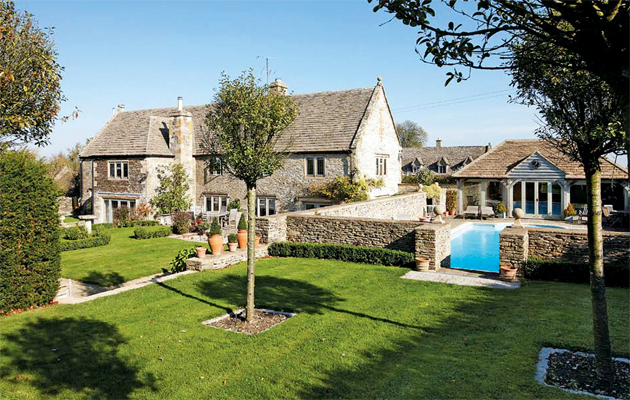How to avoid inheritance tax
How can you pass on an estate worth more than £1 million to your children without surrendering a large chunk to the taxman?


It was heavily trailed in the press that George Osborne’s July budget would change inheritance tax (IHT) rates for the next five years. But now that the dust has settled, it’s apparent that the changes will only affect the tax on properties inherited by the deceased’s children or grandchildren, are being delayed, will not apply to houses worth more than £2.35 million and only apply in a limited way to those in the £2 million to £2.35 million bracket.
Are there other ways to pass on the family home that won’t incur a large tax bill? One tried-and-tested method has been for the parents simply to hand over their house to their off- spring and to carry on living there, but, now, they’re required to pay rent at the market value to their children, the new owners, and many of the older generation don’t have the where- withal to do this.
Another alternative is for the par- ents to sell the family home to their inheritors at a discount, but continue living there essentially rent-free. It works like this: in order to reduce the value of the house, the parents need to award themselves a lease on the house at a peppercorn rent, for up to 20 years. The parents then sell the house to their beneficiaries. It’s now worth much less as it’s a far less attractive proposition to potential buyers—few will want to buy a house they can’t use for 20 years and which will bring them, in effect, no income during this time.
Andrew Symington, managing director of Symington Elvery (020– 3324 0360), explains: ‘By this means, a house worth £3 million could be reduced quite legitimately in value to about £1.25 million. The children have to find the funds for the purchase and also pay the Stamp Duty Land Tax, which, in this example, would be £68,750.’
Tania Austin, a partner at Gardner Austin property solicitors (020–7821 2600), counsels: ‘The sale must be for full market value and backed up by at least one independent valuation. There cannot be any assistance or gift from the parents to the children in order for them to purchase the property, so the children must have the funds to buy the house, and the parents cannot give back to the children any part of the purchase price paid.’
If the parents die within the period of the lease, the children don’t inherit the house—as they already own that—but the lease on it. As Mr Symington explains: ‘If both parents die after, say, 15 years, their lease will only have five years left. If the market rent is £3,000 to £5,000 per month, it’s hard to see someone paying more than, say, £150,000— thus the IHT liability is reduced from £3 million to £150,000, thus saving the children potentially up to £1.14 million in IHT.’
Miss Austin adds: ‘Capital Gains Tax (CGT) will apply on the children when they then dispose of the property as it will not have been their main residence, so no principal private residence relief will be available to them, for that period at least. Despite this, CGT rates are much lower than IHT ones.’
Exquisite houses, the beauty of Nature, and how to get the most from your life, straight to your inbox.
A further potential benefit is that the house in our example, at a sale value of £1.25 million, now comes under the £2 million threshold for the new main-residence IHT relief announced in the July budget. The parents will no longer be passing down a house, but, because they owned a house on or after July 8, 2015, they could still be able to claim main-residence IHT relief.
How this will work in practice, the Government has yet to decide. It plans to announce how this aspect of the IHT tax change will be applied before the end of this year.

Credit: Strutt and Parker
Best country houses for sale this week
An irresistible West Country cottage and a magnificent Cumbrian country house make our pick of the finest country houses for
Country Life is unlike any other magazine: the only glossy weekly on the newsstand and the only magazine that has been guest-edited by His Majesty The King not once, but twice. It is a celebration of modern rural life and all its diverse joys and pleasures — that was first published in Queen Victoria's Diamond Jubilee year. Our eclectic mixture of witty and informative content — from the most up-to-date property news and commentary and a coveted glimpse inside some of the UK's best houses and gardens, to gardening, the arts and interior design, written by experts in their field — still cannot be found in print or online, anywhere else.

